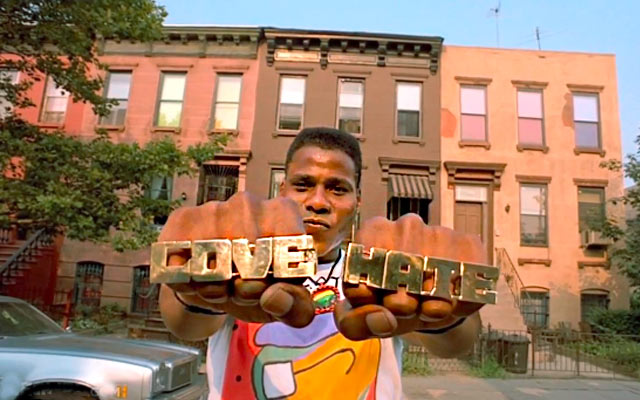
Editor’s note: In the wake of George Zimmerman’s acquittal for the murder of Trayvon Martin, guest contributor Harmony Holiday posits “sound, poetry, music, and listening as modes of resistance” and protest. Read on.
As the reel played in my heart/mind, the vivid windmill of all of the possible ways which we can and will react to the Trayvon verdict, to the gully tangle of mental illness and mental slavery that produced it, to the heinous incident that made the trial so public in the first place, to the sad ‘who’s on top’ rhetoric, to the pettiest ways we perform and pattern our collective delusion in this country, one thing I thought was that at least maybe the rhetoric of “post-blackness” or “post-raceness” will fade-out for a while, that a graceful poised militancy will re-animate our blood, but toward what?
One of my first thoughts in answer to that question was, what if instead of traditional riots and protests we emulate the people in Taksim Square, not by standing silently and reading books or headlines, but by re-mixing the idea of unconventional mass dissent, and pulling a Radio Raheem, playing Theo Parrish-esque sound sculptures through oldschool boomboxes perched on our shoulders like falcons or monuments? Or even assembling to create new sounds of homage on the spot, live and direct, as collectively improvised injections of tone science and sonic warfare into an atmosphere that’s been too dense to permeate any other way. So I made such a sculpture after a few minutes of feeling confounded by the verdict and having flashbacks of me and friends cheering and flailing like streamers over the OJ verdict, over the sound of James Brown’s Big Payback, rejoicing even in our suspicion.
Would an atypical protest platform, one founded on our strongest technology–black music–remind us how much we value ourselves?
 This verdict feels like the opposite of that same energy. I tried to imagine the people who might be cheering for Zimmerman the way we cheered for Simpson, and then I tried to smear the vision with the fuzz of another radio or mythic sample like George Zimmerman doesn’t care about black people. Not a surprise. But I wonder if an atypical protest platform, one founded on our strongest technology–black music–the science of sound, I wonder if that would remind us how much we value ourselves, make us impervious to incidents like this one. Poetry (words) and music teach us how to shape shift, how to re-make the language and regain jurisdiction over the sounds we are expected to assimilate, how to be unpredictable without being erratic, how to rebel using discipline.
This verdict feels like the opposite of that same energy. I tried to imagine the people who might be cheering for Zimmerman the way we cheered for Simpson, and then I tried to smear the vision with the fuzz of another radio or mythic sample like George Zimmerman doesn’t care about black people. Not a surprise. But I wonder if an atypical protest platform, one founded on our strongest technology–black music–the science of sound, I wonder if that would remind us how much we value ourselves, make us impervious to incidents like this one. Poetry (words) and music teach us how to shape shift, how to re-make the language and regain jurisdiction over the sounds we are expected to assimilate, how to be unpredictable without being erratic, how to rebel using discipline.
I think now is a great time to think about sound, poetry, music, and listening as modes of resistance in a very literal sense, since our clearest plaintiff cries are construed as wolf cries; while our tone poems and songs dominate the airwaves. I picture a sea of Radio Raheem-looking we, hoods up, radios blaring in unison, and it feels like the right thing. A reclamation of the truth from the trick, a record keeping/ ark(ive) constructing, that goes beyond the event horizon, our blues for two martyrs, our jazz memorial, our counterspell against getting got.

